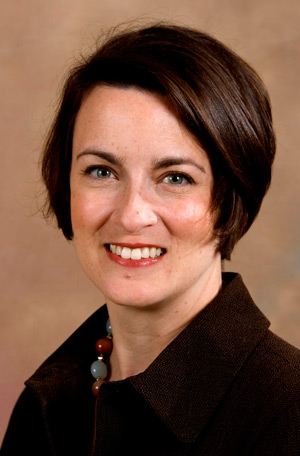
WASHINGTON (CNS) — The Food and Drug Administration “acted irresponsibly” with its decision to lower the age limit from 17 to 15 for purchasing an over-the-counter emergency contraceptive, said an official of the U.S. Conference of Catholic Bishops.
“No public health consideration justifies the unsupervised sale of such drugs to young teens,” said Deirdre McQuade, spokeswoman for the USCCB’s Secretariat for Pro Life Activities.
Plan B One-Step now will be sold openly on pharmacy shelves while the generic brands will still be sold under pharmacy counters and only for those 17-years of age. Those who purchase the drugs will have to show identification to prove their age.
A ruling by a federal judge in early April said the Food and Drug Administration must make emergency contraceptives available to all ages by May 6.
U.S. District Court Judge Edward Korman in Brooklyn, N.Y., said the case wasn’t about the potential misuse of the emergency contraceptive by 11-year-olds because he said the number of girls that age likely to use the drugs was minuscule.
Korman’s ruling was in response to a lawsuit by the Center for Reproductive Rights seeking to expand access to emergency contraception.
McQuade said in a May 1 statement that she hopes the FDA will appeal the federal judge’s decision. The FDA said in a statement that its April 30 decision was independent of the court case and was not intended to address it.
Plan B, known generically as levonorgestrel, uses large doses of birth-control pills to prevent conception up to 72 hours after unprotected sex. According to the FDA it will “not stop a pregnancy when a woman is already pregnant, and there is no medical evidence that the product will harm a developing fetus.”
In 2006, the Food and Drug Administration approved over-the-counter sales of Plan B to women 18 and older; three years later, a court ruling made it available to women 17 and older without a prescription. Until Korman’s ruling, anyone younger still needed a prescription.
The Associated Press reported that the FDA was ready to lift all age limits on emergency contraceptives and let them be sold over the counter in late 2011, but Health and Human Services Secretary Kathleen Sebelius, changed the FDA’s course, saying that even though some girls as young as 11 are physically capable of bearing children they shouldn’t be able to buy the pregnancy-preventing pill on their own.
McQuade said the FDA’s latest decision will make young teens “vulnerable to sexually transmitted diseases and sexual manipulation.”
She said studies have shown that “wider access to so-called ’emergency contraception’ reduces neither pregnancy nor abortion rates, but can contribute to higher rates of sexually transmitted disease, especially among young people.”
The group Concerned Women for America charged that health officials were putting politics and so-called progress ahead of the health of children as well as women.
“It makes no sense that kids need parental permission to take aspirin at school, but they’re free to buy and administer Plan B,” Penny Nance, CEO and president of CWA, said in a statement.
Some women’s groups said the FDA’s decision was seen as not doing enough by some women’s groups who noted that some young women without identification will still be unable to purchase the emergency contraceptives.
A Feb. 21 statement by the German bishops said the “morning-after pills,” or Plan B, can be dispensed at church-run hospitals to prevent rape victims from becoming pregnant.
“Women who have been victims of rape will, of course, receive human, medical, psychological and pastoral help in Catholic hospitals — this can include administration of the ‘morning-after pill’ as long as it has a preventive rather than abortive effect,” the bishops’ conference said.
They added that “medical and pharmaceutical methods that result in the death of an embryo may still not be used.”






